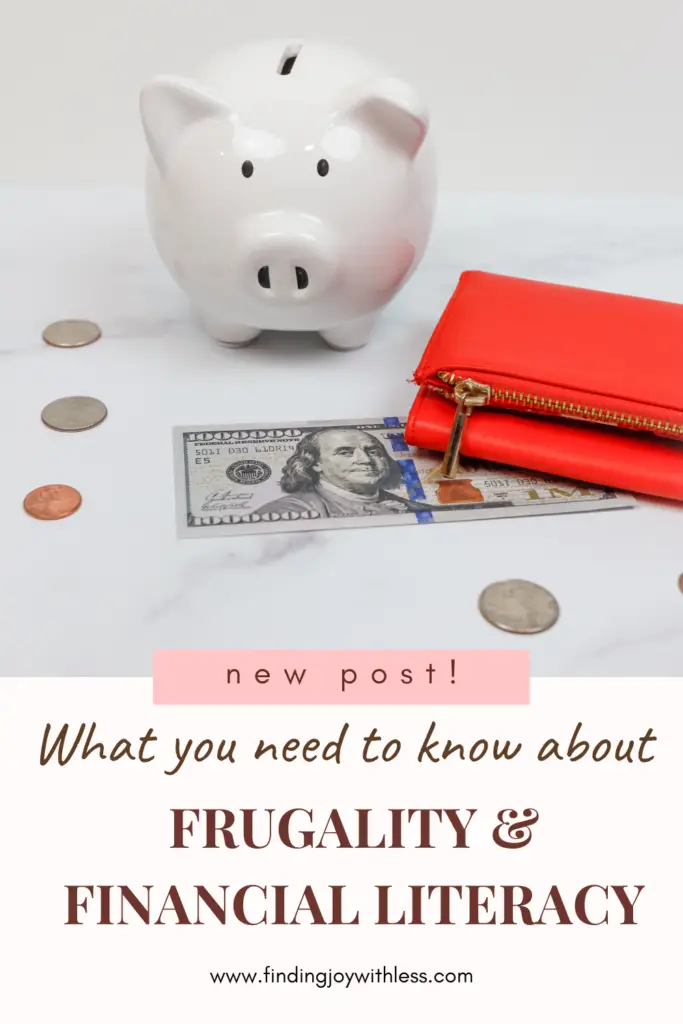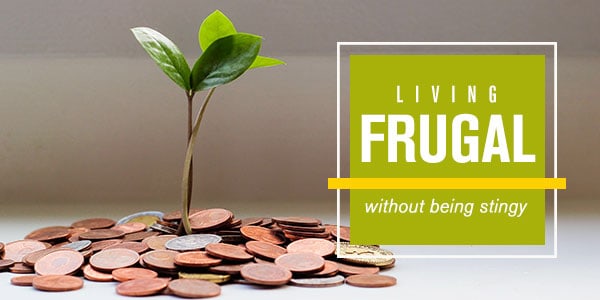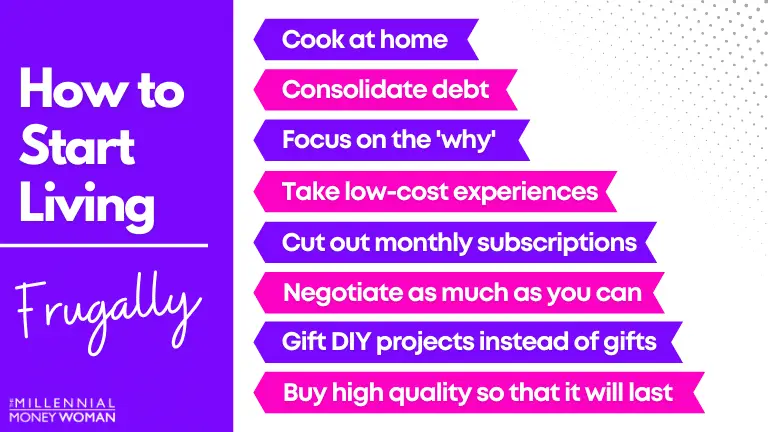Introduction
I’ve always believed that living a frugal lifestyle is not just about saving money; it’s about having a mindset that encourages wise spending habits and making intentional choices to achieve financial freedom. One area where frugality can truly make a difference is in reducing debt.
The Link Between Frugality and Debt Reduction
When I first started my journey towards becoming debt-free, I realized that being frugal was a crucial component of my success. By embracing frugality, I was able to make significant progress in reducing my debt.
Cutting Expenses and Prioritizing Debt Repayment
Frugality taught me the importance of evaluating my expenses and finding areas where I could cut back. I began analyzing my spending habits, distinguishing between wants and needs, and making adjustments accordingly. By prioritizing debt repayment, I was able to direct more of my income towards paying off my debts, whether it was credit card balances or student loans.
Challenging Consumer Mindset
Living a frugal lifestyle also allowed me to challenge our society’s consumer mindset. Instead of constantly seeking instant gratification through spending, I learned to appreciate the value of delayed gratification. By delaying purchases and questioning whether I truly needed an item, I was able to avoid unnecessary debt and save more money for debt repayment.
Resourceful Living
Frugality pushed me to adopt a more resourceful way of life. I discovered creative ways to meet my needs without overspending. This included finding affordable alternatives, repurposing items instead of buying new ones, and embracing minimalism. These resourceful habits not only helped me save money but also reduced the temptation to take on more debt.
Building an Emergency Fund
Another valuable lesson I learned from practicing frugality was the importance of building an emergency fund. By saving a portion of my income, I created a financial cushion that protected me from unforeseen expenses or emergencies. Having an emergency fund significantly reduced my reliance on credit cards or loans, preventing me from accumulating more debt.
frugality played a significant role in my journey towards reducing debt. By cutting expenses, prioritizing debt repayment, challenging consumer mindsets, adopting resourceful living, and building an emergency fund, I was able to gain financial stability. Embracing a frugal lifestyle not only helped me reduce debt but also provided me with the tools and mindset needed to maintain a debt-free life.

What is Frugality?
Definition of frugality
Frugality can be defined as the practice of being wise with your finances, making deliberate and conscious decisions to lead a more economical and resourceful lifestyle. It involves being thoughtful about how you spend, save, and prioritize your money, focusing on maximizing value and minimizing waste.
Principles of living a frugal lifestyle
Living a frugal lifestyle is about adopting certain principles that can help you achieve financial stability and reduce debt. One of the key principles is budgeting. By creating a detailed budget, you can track your expenses, identify areas where you can cut back, and allocate funds towards paying off your debts. This ensures that every dollar is spent intentionally and helps you avoid unnecessary purchases.
Another principle is to prioritize needs over wants. Before making any purchase, ask yourself if it is a necessity or merely a desire. By differentiating between the two, you can curb impulse buying and focus on essential expenses. This habit of thoughtful spending enables you to allocate more money towards debt repayment, which ultimately accelerates your journey to becoming debt-free.
Frugality also encourages resourcefulness and creativity. It prompts you to find alternative ways to meet your needs without resorting to excessive spending. This could involve DIY projects, repurposing items, or finding cost-effective alternatives. By adopting a frugal mindset, you become more adept at finding solutions that conserve your resources and reduce unnecessary expenditures.
frugality is a way of life that prioritizes financial prudence and resourcefulness. By adhering to the principles of living a frugal lifestyle, such as budgeting, prioritizing needs over wants, and embracing resourcefulness, you can effectively reduce debt and achieve financial freedom. So, why not start embracing frugality today and take control of your financial future?

Understanding Debt
Debt is a burden many individuals carry, causing stress, sleepless nights, and limited financial freedom. It is important to have a clear understanding of debt in order to effectively reduce it. In this section, I will discuss the different types of debt, the causes of debt, and the impact it has on individuals and society.
Different types of debt
Debt comes in various forms, such as credit card debt, student loans, mortgages, and car loans. Each type of debt carries its own interest rates and repayment terms. It is crucial to identify the type of debt one has and prioritize the repayment accordingly. By understanding the different types of debt, individuals can make informed decisions on how to allocate their resources towards paying off those debts with the highest interest rates or shortest repayment terms.
Causes of debt
Debt can be caused by a multitude of factors. Poor financial management, overspending, unexpected medical expenses, job loss, or simply living beyond one’s means can all contribute to debt accumulation. By recognizing the causes of debt, individuals can take proactive steps to avoid or mitigate these circumstances. This may involve creating a realistic budget, cutting unnecessary expenses, and seeking professional financial advice.
Impact of debt on individuals and society
The consequences of debt extend beyond an individual’s financial situation. Debt can strain relationships, hinder personal and professional growth, and lead to psychological distress. Moreover, when debt becomes pervasive within a society, it can have adverse effects on the economy, including reduced consumer spending, decreased investments, and limited economic growth.
Understanding debt is the first step towards reducing it. In the following sections, we will explore how frugality can play a pivotal role in alleviating debt burdens and achieving financial freedom. So, let’s dive deeper into how adopting a frugal lifestyle can help individuals reduce their debt and transform their financial future. Stay tuned!
How Frugality Can Help Reduce Debt
The Role of Frugality in Debt Reduction
Why Frugality is Key
In my journey towards financial freedom, I have come to realize the vital role that frugality plays in reducing debt. By embracing a frugal lifestyle, I have been able to effectively manage my expenses and steadily chip away at my debt. In this section, I will delve into the relationship between frugality and debt reduction, highlighting the benefits of practicing frugality in this pursuit.
The Relationship Between Frugality and Debt Reduction
Frugality and debt reduction go hand in hand. When I decided to be more frugal, I took a comprehensive look at my spending habits and identified areas where I could cut back. By adopting a mindset of mindful spending, I was able to prioritize my needs over wants, making conscious choices to avoid unnecessary expenses.
One of the primary benefits of practicing frugality is that it allows me to save money. By being mindful of my spending, I am able to allocate more funds towards paying off my debts. Every dollar saved from being frugal is a step closer to achieving debt freedom. It has empowered me to take control of my financial situation and break free from the burden of debt.
Benefits of Practicing Frugality for Reducing Debt
Aside from the obvious financial benefits, embracing frugality has had a profound impact on my overall well-being. Taking a frugal approach has taught me the value of minimalism and living within my means. I have discovered the joy of finding satisfaction in experiences rather than material possessions.
Furthermore, frugality has helped me develop discipline and enhance my financial literacy. By carefully examining my expenditures, I am better equipped to differentiate between essential and frivolous spending. This newfound awareness has reshaped my mindset towards money, enabling me to make smarter financial decisions that support debt reduction.
frugality serves as a powerful tool in reducing debt. By adopting a frugal lifestyle, individuals can effectively manage their expenses, save money, and ultimately break free from the bondage of debt.

Frugal Budgeting
Creating a budget based on frugality
As someone who has personally experienced the burden of debt, I understand the importance of finding effective ways to reduce it. One approach that has proven to be incredibly valuable is frugality. By adopting a frugal lifestyle, I have been able to regain control of my finances and steadily decrease my debt.
One of the first steps towards frugal budgeting is creating a comprehensive budget. Start by listing all your expenses and categorizing them based on their priority. This will give you a clear overview of where your money is going and help you identify areas where you can cut back. Be diligent in tracking your expenses and regularly reassess your budget to ensure its effectiveness.
Tips and strategies for saving money
There are numerous strategies you can employ to save money and reduce debt. First and foremost, it’s important to differentiate between wants and needs. Prioritize your needs and limit your spending on unnecessary luxuries. Consider adopting a minimalist lifestyle and refrain from impulse buying. Additionally, make it a habit to compare prices, seek out sales, and utilize coupons. Small savings can add up over time and contribute to your debt reduction efforts.
Another effective strategy is to be conscious of your energy usage and make efforts to conserve it. Turn off lights and electronics when they are not in use, lower your thermostat during the colder months, and hang your clothes to dry instead of using a dryer. Not only will these actions reduce your utility bills, but they will also make you more environmentally conscious.
incorporating frugality into your budgeting techniques can significantly aid in your debt reduction journey. By creating a budget based on frugality and implementing money-saving strategies, you can make a noticeable impact on your financial situation. Remember, it’s not about feeling deprived, but rather making intentional choices that align with your financial goals. Ultimately, the path to debt freedom requires discipline, perseverance, and the willingness to embrace a frugal lifestyle.

Cutting Expenses
Identifying unnecessary expenses
When it comes to reducing debt, one of the most effective strategies is cutting expenses. By identifying unnecessary or wasteful spending, we can free up more money to put towards debt repayment.
To get started, it’s important to take a close look at our monthly budget and analyze each expense. Ask yourself, “Is this necessary?” and “Does it align with my long-term financial goals?” Be honest with yourself and identify any expenditures that are not essential or bring little value to your life. This could be anything from unused gym memberships to excessive dining out or impulse online shopping.
Ways to reduce common expenses
The next step is finding practical ways to reduce common expenses such as housing, transportation, and food. When it comes to housing, consider downsizing to a smaller, more affordable place or finding a roommate to share costs. This can significantly reduce your monthly rent or mortgage payments.
Transportation expenses can be minimized by taking public transportation or carpooling whenever possible. Alternatively, if you live in a pedestrian-friendly area, consider walking or cycling to nearby destinations. Not only will you save money, but you’ll also contribute to a healthier lifestyle.
When it comes to food, meal planning and cooking at home can save you a substantial amount of money in the long run. Limit eating out to special occasions and focus on preparing meals with cost-effective ingredients. Consider buying groceries in bulk and utilizing leftovers creatively to stretch your food budget further.
By implementing these frugal strategies, you can take control of your finances and make significant progress in reducing your debt. Remember, every small saving adds up over time, so be consistent and intentional in your spending choices. Prioritize your long-term financial goals and make the necessary sacrifices to achieve them.

Minimizing Debt through Frugal Habits
As someone who is passionate about frugality and helping others reduce their debt, I have seen firsthand the power of adopting a frugal lifestyle. By making simple changes to our spending habits and embracing frugality, we can take significant steps towards reducing our debt and achieving financial freedom.
Avoiding unnecessary purchases
One of the key principles of frugality is avoiding unnecessary purchases. By carefully considering our buying decisions and distinguishing between wants and needs, we can save a substantial amount of money. When we resist the urge to make impulse purchases or buy items that don’t align with our priorities, we can redirect those funds towards paying off our debts.
Using coupons and discounts
Another effective frugal habit is utilizing coupons and discounts whenever possible. Taking the time to search for coupons, compare prices, and wait for sales can result in significant savings over time. Whether it’s clipping coupons from newspapers, using digital coupon apps, or signing up for loyalty programs, these small actions can add up and help us pay off our debts faster.
Adopting a minimalist lifestyle
Embracing a minimalist lifestyle is a powerful way to reduce debt and improve our financial well-being. By decluttering our homes, we can identify what truly brings us joy and let go of unnecessary possessions that may have been purchased on impulse. Selling these items or donating them not only helps us generate additional income but also creates a more peaceful and clutter-free living environment.
frugality plays a crucial role in debt reduction. Through avoiding unnecessary purchases, utilizing coupons and discounts, and adopting a minimalist lifestyle, we can take control of our finances and work towards eliminating our debt. By making these small, yet impactful, changes in our daily lives, we can pave the way for a more secure and financially stable future. So, why not start embracing frugality today and witness the positive impact it can have on your debt reduction journey?
Frugality and Debt Repayment Strategies
Debt Snowball Method
When it comes to reducing debt, being frugal can play a crucial role in achieving financial freedom. One effective debt repayment strategy is the debt snowball method. With this approach, I start by listing all my debts from smallest to largest, regardless of interest rates. By focusing on paying off the smallest debt first, I am able to gain momentum and motivation as I see my progress. I allocate as much extra money as possible towards this smallest debt while making minimum payments on the others. Once the smallest debt is paid in full, I move on to the next one and repeat the process. Each time a debt is fully paid off, I have more money available to put towards the remaining debts. This method not only helps me stay motivated by achieving quick wins but also allows me to build confidence in my debt-reduction journey.
Debt Avalanche Method
Another effective debt reduction strategy is the debt avalanche method. This approach involves listing debts from highest to lowest interest rates. By focusing on paying off the debt with the highest interest rate first, I can save more money in the long run. With the debt avalanche method, I allocate any extra funds towards the debt with the highest interest while making minimum payments on the others. Once the highest-interest debt is paid off, the excess funds are redirected to the next highest-interest debt in line. This method helps me strategically tackle debts with high interest rates, ensuring that I am minimizing the overall interest I pay and accelerating my debt reduction.
Negotiating Lower Interest Rates
Another aspect of frugality that can aid in reducing debt is the ability to negotiate lower interest rates. By reaching out to creditors and expressing my desire to pay off the debt in a timely manner, I have successfully negotiated lower interest rates on my debts. This can result in significant savings over time, reducing the overall amount of debt that needs to be repaid. With perseverance and effective communication skills, I have been able to secure more favorable interest rates and make my debt repayment journey more manageable.
the role of frugality in debt reduction cannot be understated. By implementing strategies such as the debt snowball method and the debt avalanche method, and by negotiating lower interest rates, I have been able to make significant progress in my journey towards becoming debt-free. Being frugal allows me to maximize my resources, stay motivated, and ultimately gain control over my financial future. So embrace the frugal lifestyle and watch your debt shrink as you make smarter financial choices each day.
Developing a Frugal Mindset
Changing attitudes towards money and consumption
In today’s consumer-driven society, it’s easy to get caught up in the relentless pursuit of material possessions. However, adopting a frugal mindset can help you regain control over your finances and significantly reduce your debt. As the creator of frugaldude.org, I have dedicated countless hours researching and compiling valuable information about frugal living strategies that can be easily implemented in day-to-day life. In this section, I will dive deeper into the fundamental aspects of developing a frugal mindset, emphasizing the importance of changing attitudes towards money and consumption.
To effectively reduce debt, it’s crucial to alter your perspective on what truly brings value and satisfaction in life. By shifting your focus away from the accumulation of possessions and towards intentional spending, you can begin to make significant progress in your debt reduction journey. This starts by recognizing that instant gratification often leads to long-term financial burdens. Instead of impulsively purchasing the latest gadgets or designer items, consider delaying gratification, and only make purchases that align with your long-term financial goals.
Understanding the difference between needs and wants
One of the key principles of frugality is distinguishing between essential needs and unnecessary wants. It’s essential to differentiate between things that are truly necessary for your basic survival and those that are merely fleeting desires. By only spending on essential needs such as housing, food, utilities, and healthcare, you can drastically reduce your monthly expenses and allocate more funds towards debt repayment. This conscious evaluation of needs versus wants will not only help you manage your debt but also promote a more minimalist and financially sustainable lifestyle.
To summarize, developing a frugal mindset is a crucial step towards reducing debt. By changing your attitudes towards money and consumption, you can start to prioritize financial stability and long-term goals over momentary indulgences. Moreover, recognizing the difference between needs and wants allows you to make smarter, more intentional spending decisions, effectively curbing unnecessary expenses and accelerating your journey towards debt freedom. With the guidance and resources provided on frugaldude.org, you can embark on a transformative path towards financial security and a debt-free future.
Building Emergency Savings
The Importance of Having an Emergency Fund
Having an emergency fund is a crucial part of a frugal lifestyle and a key strategy in reducing debt. It serves as your safety net, providing you with financial security during unexpected situations or emergencies. Whether it’s a sudden medical expense, major car repair, or temporary job loss, an emergency fund ensures that you have the means to cover these unforeseen expenses without resorting to credit cards or accumulating more debt.
Having experienced the burden of debt myself, I understand the importance of having an emergency fund. It was the lack of savings that kept me trapped in a cycle of debt for years. But once I started practicing frugality and allocating a portion of my income towards building an emergency fund, I was able to break free from the cycle.
Tips for Saving Money for Unexpected Expenses
Building an emergency fund requires discipline and a smart approach. Here are a few tips to help you save money for unexpected expenses:
- Set a Savings Goal: Determine the amount you would like to have in your emergency fund. Aim to save at least three to six months’ worth of living expenses.
- Create a Budget: Track your income and expenses to identify areas where you can cut back. Consider reducing non-essential expenses, such as eating out or unnecessary subscriptions.
- Automate Savings: Set up automatic transfers from your paycheck into a separate savings account dedicated to your emergency fund. This way, you won’t be tempted to spend the money elsewhere.
- Shop Smart: Look for deals and discounts when making purchases. Consider buying generic brands or purchasing items in bulk to save money in the long run.
By following these tips and adopting a frugal mindset, you can gradually build your emergency fund and reduce the dependence on credit cards or loans when unexpected expenses arise. Remember, small savings add up over time, and having an emergency fund will provide you with peace of mind and financial stability. Start building your emergency fund today and pave your way to a debt-free future!
Investing for the Future
Utilizing frugal investment strategies
As I delve into the topic of frugality and its impact on reducing debt, it becomes evident that adopting a frugal lifestyle goes beyond just saving money on everyday expenses. One crucial aspect of frugality that often gets overlooked is its potential to help individuals invest for a more financially secure future.
When we think of investing, the first thing that comes to mind may be the stock market or real estate. While these avenues can indeed generate significant returns, they require a substantial financial commitment and carry a certain amount of risk. However, by embracing a frugal mindset, one can make small and consistent investments that accumulate over time. This approach allows for the gradual building of wealth without putting a strain on one’s finances.
Building financial independence through investing
Frugality can open up opportunities for investing in oneself, which can ultimately lead to financial independence. By cutting unnecessary expenses and redirecting those funds towards personal development, individuals can acquire new skills to enhance their earning potential. This could involve enrolling in online courses, attending workshops, or even starting a small business on the side.
Financially independent individuals understand the importance of diversifying their income streams. By embracing a frugal lifestyle, they free up additional funds that can be used to invest in income-generating assets, such as stocks, bonds, or rental properties. These investments provide a steady stream of passive income, reducing reliance on a single source of income and offering greater financial security.
frugality is not solely about cutting costs and reducing debt; it is also a pathway to a more prosperous future. By adopting frugal investment strategies and using saved funds to invest in oneself and income-generating assets, individuals can build a secure financial foundation. So, let’s not underestimate the power of frugality in helping us reduce debt and ultimately achieve our financial goals.
Conclusion
In conclusion, it is evident that frugality plays a significant role in reducing debt. By adopting a frugal lifestyle, individuals can effectively manage their finances, reduce unnecessary expenses, and channel their resources towards debt repayment.
One of the key ways frugality can help reduce debt is by promoting mindful spending. By consciously evaluating our purchases and distinguishing between wants and needs, we can avoid unnecessary expenses and allocate more funds towards debt repayment. Additionally, practicing frugality encourages individuals to search for affordable options, such as buying secondhand items or utilizing coupons, which can further reduce expenses and contribute towards debt reduction.
Moreover, frugality promotes a shift in mindset, encouraging individuals to prioritize their long-term financial goals over short-term gratification. By making small sacrifices and cutting back on luxuries, individuals can actively work towards eliminating debt and creating a more stable financial future. Frugality also encourages individuals to live within their means and avoid accumulating new debt, ensuring that progress made towards debt reduction is not undone.
Furthermore, the frugal lifestyle fosters creativity and resourcefulness. By finding alternative ways to fulfill our needs and desires, such as cooking at home instead of eating out or exploring free or low-cost entertainment options, we can significantly reduce expenses and allocate more funds towards debt repayment. This resourceful mindset not only aids in immediate debt reduction but also cultivates valuable habits and skills that can contribute to long-term financial health.
Overall, embracing frugality provides individuals with a powerful tool to tackle and reduce debt. By adopting mindful spending habits, shifting our mindset to prioritize financial goals, and harnessing our creativity and resourcefulness, we can make substantial progress in our debt reduction journey. So let’s embrace the frugal lifestyle, take control of our finances, and pave the way towards a debt-free future.

